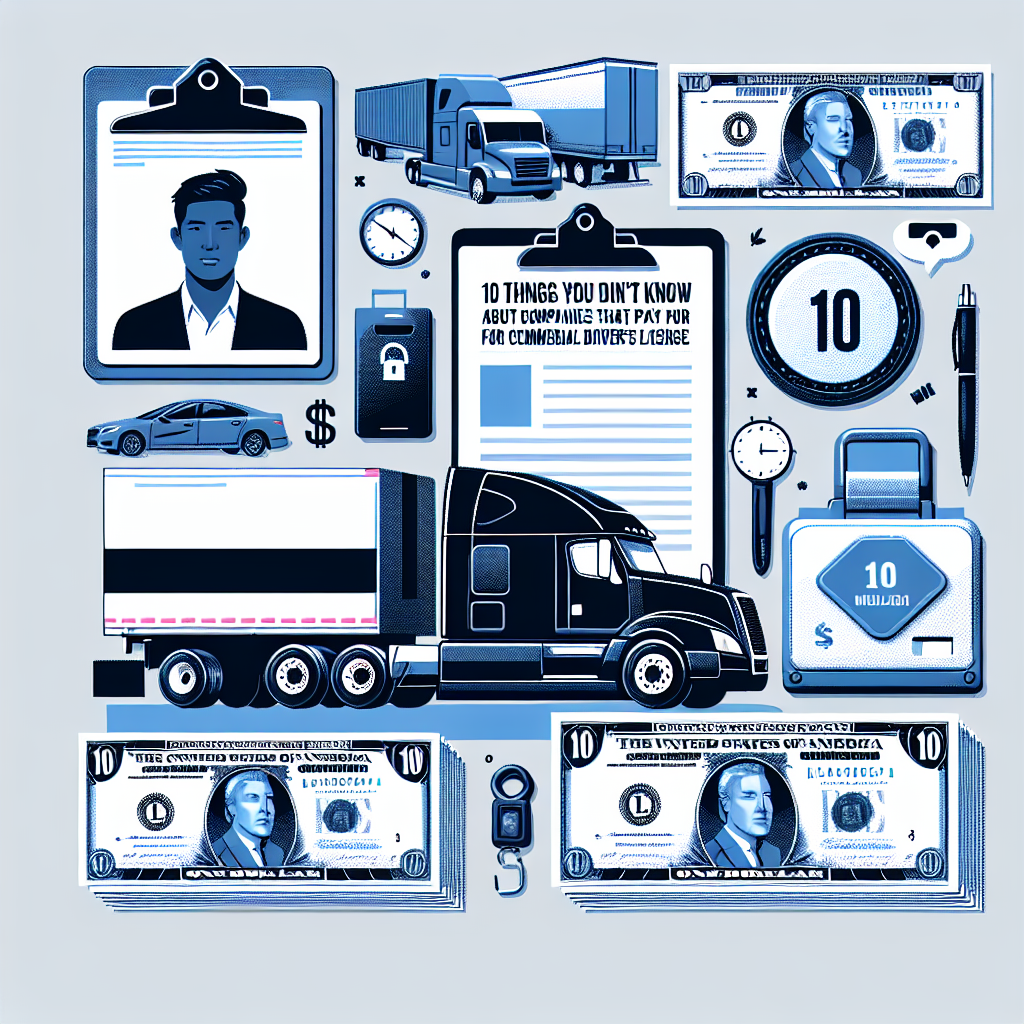Many job seekers assume companies that offer to pay for a Commercial Driver’s License simply want a steady supply of drivers. In reality, “10 Things You Didn’t Know About Companies That Pay For Cdl” reveals a more complex picture: varied contracts, training standards, regional needs, and unexpected benefits. This article breaks down lesser-known facts about employer-sponsored CDL programs so you can make smarter decisions about training, payback obligations, and career growth.
Less-obvious facts about companies that cover CDL costs
Companies that invest in employee licensing do so for reasons beyond filling seats behind the wheel. Understanding these motivations helps prospective drivers evaluate offers and spot the best programs for long-term stability and pay. Below are ten items employers often don’t advertise up front.
- They treat training as an investment, not charity. Employers view sponsored CDL training as a way to mitigate hiring risk — they train drivers to their own safety and performance standards so recruits are more productive and safer on day one.
- Payback agreements vary widely. Some companies use simple pro-rated repayment schedules if you leave early; others require you to complete a set period of service. Always read the contract for terms like prorating, tax withholding, and whether repayment is forgivable over time.
- Not all paid training covers everything. Basic tuition may be included, but other costs — endorsements, housing during training, or testing fees — could be billed separately. Ask which line items are covered before you sign.
- There are different classes of sponsorship. Full sponsorship covers tuition, testing, and sometimes wages during training. Partial sponsorship might only reimburse tuition after a probationary period or offer bonuses once you complete training and stay for a set term.
- Some companies have hidden job tiers. New CDL grads often start on short-haul or regional routes before becoming eligible for long-haul or high-paying lanes. Advancement can depend on safety records, experience, and additional endorsements.
- Training quality varies by provider. Employers may partner with community colleges, private truck driving schools, or in-house trainers. Research the partner school’s completion and pass rates rather than assuming employer-sponsored means high quality.
- There are mobility and skill-transfer perks. A CDL can open doors to mechanic, dispatcher, or safety-management roles within the same company, especially if they offer cross-training or tuition reimbursement for additional skills.
- Some offers are targeted to specific demographics. Employers sometimes design programs for veterans, career changers, or those re-entering the workforce — and resources for older workers, such as those exploring new careers, may be highlighted on career transition pages like starting fresh: new career paths for women at 50.
- Companies track retention closely. Sponsoring training is costly, so employers implement retention strategies like sign-on bonuses, tiered pay increases, and mentorship to keep drivers beyond the required payback window.
- Industry demand affects program generosity. In tight labor markets, firms often offer more generous pay, quicker promotion paths, and full sponsorship. For context on employment trends and outlooks in driving fields, consult the BLS occupational outlook for truck drivers.
How to evaluate a company-sponsored CDL offer
When comparing programs, focus on three areas: cost and contract terms, training quality, and long-term career path. Ask these questions:
- Exactly which fees are covered and which are my responsibility?
- What are the repayment terms if I leave within the first year?
- What is the path to higher-paying routes or positions?
Practical tips before you sign
Request a written copy of the sponsorship agreement and have a trusted advisor review it. Check the training partner’s reputation, ask for placement statistics, and confirm whether wages during training match local minimums or are paid at all. Also, verify whether endorsements (hazmat, tanker) are included — they often increase your market value significantly.
- Negotiate for partial forgiveness if you exceed safety and performance benchmarks.
- Ask whether company trucks used in training are similar to those you’ll drive on the job.
- Confirm if ongoing education or re-certification costs are covered later in your career.
FAQ
Q: Will a company pay me while I train for a CDL?
A: Some do, but many do not. Paid training packages vary: full-salary training is less common, while companies often offer stipends, hourly pay, or bonuses upon completion.
Q: Can I keep my CDL if I leave the sponsoring company?
A: Yes — a CDL is issued by the state and is your credential. What you may owe the company is the agreed repayment if you leave before fulfilling the contractual term.
Q: How do I find reputable sponsored programs?
A: Start with employer reviews, school pass rates, and industry statistics such as those published by the Bureau of Labor Statistics; then speak directly with current drivers for on-the-ground insights.



